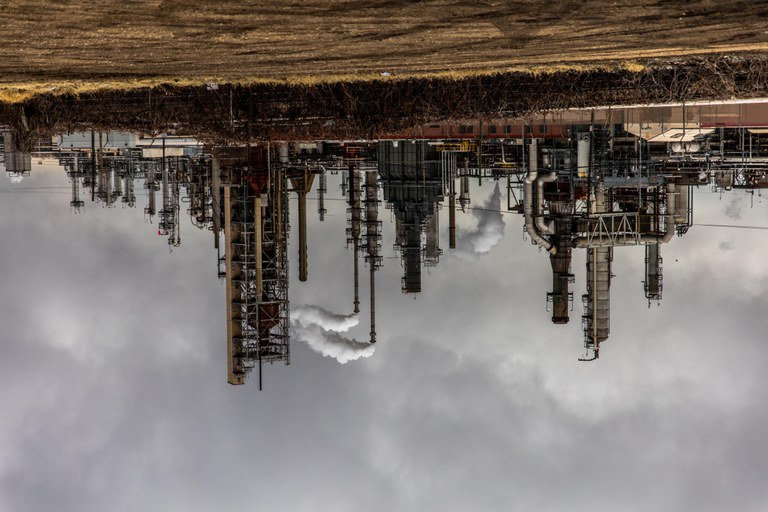Changing the Terms of the Decarbonization Conversation
Last week the Asia Garment Hub hosted its July Supplier Meet-Up. Supplier Meet-Ups are informal and unrecorded sessions open exclusively to suppliers (any tier), held on the first Thursday of every month. Each month a relevant speaker is invited to kick-start the conversation.
This month’s session was about decarbonization inspiration: what other models for decarbonization are out there? We were joined by Sven Sielhorst who works with Wij.Land, a grassroots organization collaborating with 200 dairy farmers in the Netherlands. The banner photo on their website, a picture of grazing dairy cows flipped upside down, says it all: they are turning conventional sustainability wisdom on its head.
Everything starts with recognition
Sven kicked off the session by describing the frustration amongst the dairy farmers he works with. He shared: “there’s the perception that farmers can solve whatever is thrown at them, and that they can do it alone.” He went on to say: “it’s easy to have an idea and throw it at a farmer. But that farmer isn’t always in a position to do something about it.”
For the manufacturers on the call, Sven’s description hit close to home. They, too, felt they were being asked to move mountains alone, and, worse still, felt that they were having to do so while the rest of the world (brands, retailers, activists) seemed indifferent as to whether their businesses survived or not.
Nobody put it in these terms, but I’m going to go out on a limb and say it: manufactures are sick and tired of doing the heavy sustainability lifting – for free – while simultaneously being labeled the problem by the sustainable fashion community writ large.
Most solutions are local
Sven described how, for Wij.land, everything starts with the farmer. In their model, farmers are defining what the solutions should be, and asking their buyers to opt-in. They have also re-imagined the word “value”. Wij.land works according to the 4 returns philosophy developed by Commonland.
Sven also described how, in his world, people with no understanding of place and context nonetheless permit themselves to have an opinion about what farmers should do to decarbonize. At this comment, knowing smiles from the small but dedicated group of manufacturers attending the meet-up flashed across my screen.
It prompted one manufacturer to ask: “what’s our local? Is it the factory? Is it the operator on the production floor? Or something else?” Someone responded: “a garment factory operating in Bangkok may have a decarbonization strategy that has more in common with a rice processing facility also in Bangkok than it does with a garment factory in Bangladesh.” We imagined: what does grassroots look like in our sector? Maybe it has something to do with hyper-local networks.
Changing the terms of the conversation
It’s worth doing a quick rewind: we’ve spent the last couple of meet-ups talking about decarbonization (check out reflections from May and June’s meet-ups). During those sessions, manufacturers in the group have expressed frustration with the way decarbonization is approached by the sustainable fashion community.
But the question I’ve gotten over and over from manufacturers has been: "What’s the point of hashing out these frustrations?" I know it sounds wishy-washy, but in a world of action items and to-do lists, we must create space for imagination. As Sven reflected: the first step to being able to co-imagine a different future is recognition and empathy.
We closed this month’s session with the question: if solutions are hyper-local, what do manufacturers need from the international community to decarbonize? In past meetups, this same question has resulted in very specific requests: Bespoke decarbonization roadmaps! Higher prices! More equitably distributed financial risk! More manufacturer involvement in how decarbonization funds are used!
But this month, with Sven’s help, we zoomed out: maybe the only thing manufacturers need from the international community (brands, retailers, and beyond) is for them to stand behind the idea solutions are local. This requires humility and abandoning the role of “solution prescriber.”
As for these meet-ups? Maybe the goal of this group is not about specific solutions per sé, but about changing the terms of the conversation.
Next month’s meet-up
We’ve had a number of sessions on decarbonization, we’ll be using next month’s session to tie the decarbonization conversation up (we have so much more to discuss!). By “tie up” I mean: is there any interest in shifting the conversation to a different setting – one that includes non-manufacturers? How would we do that? What could it look like?
In the past, I’ve thought maybe this would take the form of a statement or a position. But as a result of July’s session, I’m thinking maybe the key word is “conversation” – conversations between people who work in apparel manufacturing and people who do not. Could we take inspiration from unlikely places, like the Civil Conversations Project? Whether you think this is a great idea, or a terrible one, come to next month's meet-up, discuss, share.

